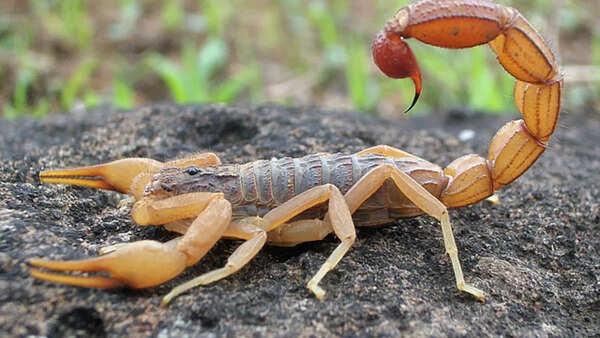
In a breakthrough, Brazilian scientists have found a molecule in an Amazonian SCORPION VENOM with great potential to cure the widely spreading cancer. The research conducted by the team at the University of São Paulo and Gifted During Fapesp Week France details how the natural compound can lead to alternative cancer treatments. As per the research, the venom of the scorpion seems to attack and kill cancer cells with little destruction to normal tissue. This research can pave the way to hopeful prospects for the creation of new treatments from nature, promising better and less invasive therapies for breast cancer in the future.
Scorpion venom molecule found to kill breast cancer cells in early tests
The focus of the study is a molecule named BamazScplp1, extracted from the venom of the Brotheas amazonicus scorpion. Early laboratory tests revealed that this peptide can kill breast cancer cells like paclitaxel, one of the most widely used chemotherapy drugs.“Through bioprospecting, we were able to identify a molecule in this species of Amazonian scorpion that acts against breast cancer cells,” said Professor Eliane Candiani Arantes, coordinator of the project. The molecule belongs to the family of serine proteases, enzymes known for their ability to break down proteins and potentially disrupt the life cycle of cancer cells.

Tests conducted on breast cancer cells showed that BamazScplp1 induces cell death primarily through necrosis, a process in which cells break apart uncontrollably. While necrosis is often considered a damaging form of cell death in healthy tissues, in cancer therapy, it can be highly effective when used to target tumors. The response was comparable to that triggered by paclitaxel, suggesting that BamazScplp1 may offer similar therapeutic effects.“The peptide induces cell death mainly through necrosis, an action similar to that of molecules identified in other scorpion species,” the study reported.
Scientists use yeast to mass produce cancer fighting molecule
Instead of collecting venom directly from scorpions, the researchers turned to a bioengineering method called heterologous expression. This involves inserting the gene that codes for the target protein into a host organism commonly yeast or bacteria which then produces the protein in large amounts.“We intend to obtain these molecules through heterologous expression,” Professor Arantes explained. The team plans to use Pichia pastoris, a yeast strain often employed in biotechnology, to mass-produce the peptide for further research and testing. This method eliminates the need for scorpion venom extraction, making it both ethical and scalable two critical factors for future drug development.
Global burden of breast cancer
Breast cancer is the leading diagnosed cancer in women and the second most prevalent cancer globally, according to the World Health Organization (WHO). A 2024 Nature Medicine study estimated that an estimated 1 in 20 women worldwide will develop breast cancer in their lifetime.In 2022 alone, there were an estimated 2.3 million new breast cancer diagnoses worldwide, and about 670,000 deaths. Most cases (71%) and fatalities (79%) were in people over the age of 50. If current trends persist, breast cancer diagnoses worldwide are likely to increase to 3.2 million a year by 2050, with more than 1 million deaths a year.
Scorpion molecule could be a game-changer in breast cancer treatment
Though these results are preliminary, they underscore the promise of natural products in the drug development process. Further lab work, animal testing, and eventually human clinical trials will be needed to establish if BamazScplp1 can safely and effectively be utilized in humans. If it is proven effective, the molecule has the potential to lead to a new generation of cancer treatments based on nature, bringing hope to millions of breast cancer sufferers worldwide.Also Read | Meet Jahnavi Dangeti, NASA’s first Indian IASP graduate from Andhra Pradesh set for 2029 space mission








